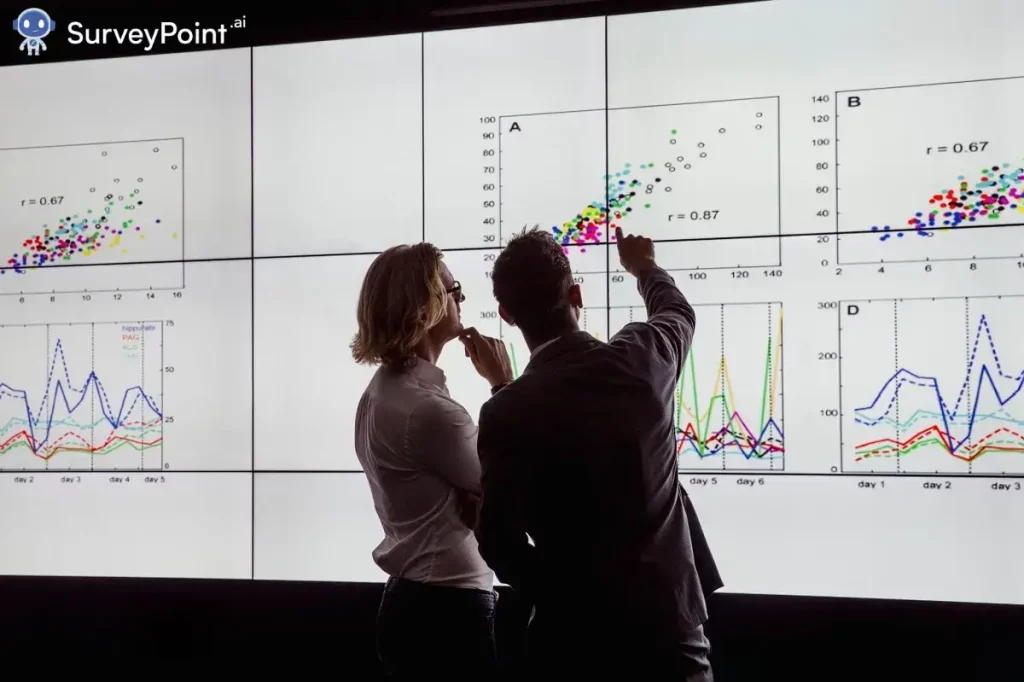Statistical tests can help you get the most out of your data. In this in-depth guide, you’ll learn how to use statistical tests to get more out of your data.
Businesses and professionals depend heavily on data to make good decisions in the data-driven world of today. But simple data alone isn’t always enough to draw conclusions that make sense. In this case, statistics tests can help.
In this detailed guide, we’ll look at how statistical tests can help you get more out of your data. From the basics to real-world applications, this article will give you the information and tools you need to use your data to its fullest.
Statistical Tests Can Help You Get More Out of Your Data

Data analysis isn’t just about collecting and saving data; it’s also about figuring out how to use that data to make things better. Statistical tests give an organized way to look at data, which makes them an essential tool for making decisions based on data.
Why statistical tests are important
Statistical tests are important because they help us find mistakes or outliers in data. This makes sure that the information we use for research is accurate.
Statistical tests are important because they help us find mistakes or outliers in data. This makes sure that the information we use for research is accurate.
Quantify connections: They give numbers to the connections between variables, which helps us figure out how strong and important those relationships are.
Make Informed Decisions: Statistical tests give you the information you need to make good decisions in business, science, or any other area.
Test Hypotheses: Researchers often use statistical tests to test hypotheses and confirm beliefs.
Different kinds of statistical tests
There are many different kinds of statistical tests, and each is made for a different reason. Some of the most popular ones are:
T-Tests are used to compare two groups’ means.
Chi-square tests look at category data to see if they are independent.
ANOVA, or Analysis of Variance, is a good way to compare the means of more than two groups.
Regression analysis is used to show how two or more factors are related.
Correlation analysis measures how strong and in what way two variables are linked.
Testing a hypothesis means putting assumptions about a community to the test using data from a sample.
Which Test to Use When
For correct results, it’s important to choose the right statistical test. When choosing, think about the following:
What kind of data do you have? Is it continuous or categorical?
How many groups are you comparing or analyzing?
What exact hypothesis or question are you trying to answer with your research?
Assumptions: Are there any that your info is based on?
Uses in the real world
Now, let’s look at some real-world situations where statistical tests can greatly improve your understanding of data:
Research on the market and A/B testing

A/B testing is a popular way for marketers to figure out how to improve their campaigns. Marketers can use statistical tests to figure out which version of an ad or website design works best, which improves conversion rates in the long run.
Clinical trials and health care
In health care, especially in clinical studies, statistical tests are very important. They help researchers figure out how well new drugs or treatments work, making sure that patients only get choices that are safe and effective.
Analysis of Money
Financial experts and investors use statistical tests to figure out how well stocks, bonds, and investment portfolios are doing. These tests give useful information about how risk and gain are related.
You Must Read Mastering Statistical Tests: A Step-by-Step Guide 7 Reasons Why Statistical Testing is Essential for Your Research Chart Type Selection Made Easy: 8 Expert Tips for Data Presentation Statistical Tests Mastery: 5 Proven Ways to Enhance Data Understanding
Frequently Asked Questions (FAQs)
How do I know which statistical test to use?
Your data and study question will help you decide which test to use. Think about things like the type of material, how many groups there are, and your hypothesis.
Can I test statistics without using software?
Some tests can be done by hand, but programs like R, Python, and statistical packages make the process faster and more accurate.
What is the p-value, and why does it matter?
If the null hypothesis is true, the p-value shows how likely it is to get results as strong as the ones that were seen. A low p-value means that the evidence against the null hypothesis is strong.
Where can I find more information about statistical tests?
You can learn about statistical tests through a variety of online classes, textbooks, and tutorials. Also, you might want to get advice from data scientists who have done this before.
Are tests of statistics always right?
Statistical tests use sample data to come up with possibilities and conclusions. Even though they are powerful tools, the accuracy of the results can be changed by things like the size of the group and the quality of the data.
Can I use statistical tests on information that isn’t a number?
Yes, some statistical tests, like chi-square tests and contingency tables, are made for data that is not a number.
Conclusion
In conclusion, anyone who works with data needs to know how to use statistical tests. They give you the power to find valuable insights, make smart choices, and test your ideas. By knowing the different kinds of tests and when to use them, you can improve your data insights and make more progress in many fields. So, don’t be afraid to use statistical tests to make your data research work better.




